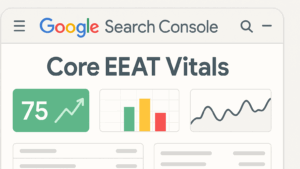Table of Contents
Toggle24 Years of Collecting SEO Myths
Ah, SEO Myths. They’ve been with us forever. Chances are that 50% of the SEO facts that many people hold dear are myths. Almost all of these have been debunked by now (but also subject to change). So what’s the problem? Well, myths are myths and they’re fine if you’re putting a baby to sleep. But when you start running an online marketing campaign – they’re just downright dangerous. While many of these myths are innocent and malign, at least 10 of them on their own, get wrong, and could destroy a site’s ability to get search traffic.
What is the oldest SEO Myth?
Duplicate content is probably the oldest SEO Myth!
The End of SEO Myth
Probably the second oldest, ironically, is the numerous Januar 1 predictions of an early demise of SEO. This is born about from a dislike or distrust of SEO but also because of its difficulty and barrier to entry.
I keep these as a veritable cheat sheet – if I’m listening to someone about SEO and they tick more than 3, I just start to zone out! So if you find yourself in a meeting and somebody is trying to push snake oil over the table, feel free to pass this on 🙂
Here is the list of my favorite Top 38 SEO Myths:
- Companies who claim to be Google Certified SEO firms – this is my number #1 pet peeve. There is no such thing. All those logos you see – are completely fake!
- You have to be listed in the DMOZ Open Directory. No, you don’t. At all. It’s a hindrance because Google might take your page title and description from there and chances are you can’t edit it!
- SEO is something you do after a website is built – rubbish, you need to start SEO before you start design
- The Duplicate content myth – the oldest and the best. It’s 2013 and this myth still pervades!
- Word count and Adding more content = great for SEO! Probably not – especially if it’s not being indexed or read, adding content may do nothing
- Your domain name needs the keywords in it. Google has been killing exact match domains (EMD) for years
- You need 250 words on a page. This was an arbitrary number made up on the spot over 14 years ago – but it’s stood the test of time.
- Good HTML is important for SEO / HTML Errors are bad for SEO > mistakes happen. Obviously – you dont want your HTML to have broken links everywhere, but broken links, apart from not being helpful to the User or SEO, aren’t a bad signal
- More inbound links = better. This was never true but now it’s a case of too many = too bad!
- H2+ tags are important to keyword relevance – I’d say they have little or no value. I’d devalue most of the on-site SEO theories
- XML Sitemaps boost your ranking. They don’t – they help you work out what is being indexed and what isn’t
- You can bury keywords put in text and links in small text – this is keyword stuffing
- SEO can replace or displace AdWords or PPC. It can’t really. If you think about it, people go for the first results – so any good and commercially viable search marketing program should include Google AdWords PPC as part of the mix.
- Google AdWords helps your SEO. In no way. If anything, it has been shown to cannibalize branded traffic
- You need to know somebody in Google. In absolutely no way will this help
- Keyword Density – please, this one is done to death!
- More clicks = better SEO – Google doesn’t know who’s clicking on your site!
- Keywords make your site rank. No, they don’t
- You need to register your site with 100’s of search engines. You don’t need to do this at all
- Great Content means Great Ranking – thousands of great blog posts don’t rank. Just look at all the “SEO is Dead” ones! Content needs SEO Context to be valuable.
- Owning lots of domains without content and linking them helps. Oh, dear 🙁
- You shouldn’t link out – dangerous is this one!
- Google loves new content. No, it doesn’t – old content can perma-rank for years. Only queries that deserve freshness help (QDF)
- Doorway pages are great for SEO. Please read up on this.
- Meta-Descriptions help SEO – Ample Google retorts, fully debunked
- Links are dead – a new one but the wrong one!
- Social Sharing is the new SEO. In theory, Social Media could help but not with nofollow, big boy egos, and private accounts. Factor in Social Spam and it’s got to be a big no-no
- Fixed Price SEO packages – personally this is one of the worst of established myths but so many website owners are getting caught that this is probably the most destructive as well.
- Domain Age as a factor. It is a factor, but not a biggy. After 6 months, age is almost a non-factor
- PageRank is dead. It’s in no way dead. It’s just not the #1 thing. PageRank values doesn’t equal rank value.
- The best links are bought links. You should avoid this at all costs
- My competitors don’t do SEO. You don’t know – you probably can’t see what they’re doing
- SEO is dead. Not with over 3 billion search users it’s not!
- A .com is better – it depends on the case. A .co is as good as a .com
- Google E-E-A-T is a Ranking System – It’s not.
- AuthorRank – Google is great at picking up Patents and killing ideas but SEOs who dont like doing SEO love to inflate them into mythical strategies. Author Rank is 100% bolony and your critical thinking should be seeing red flags when you read this






